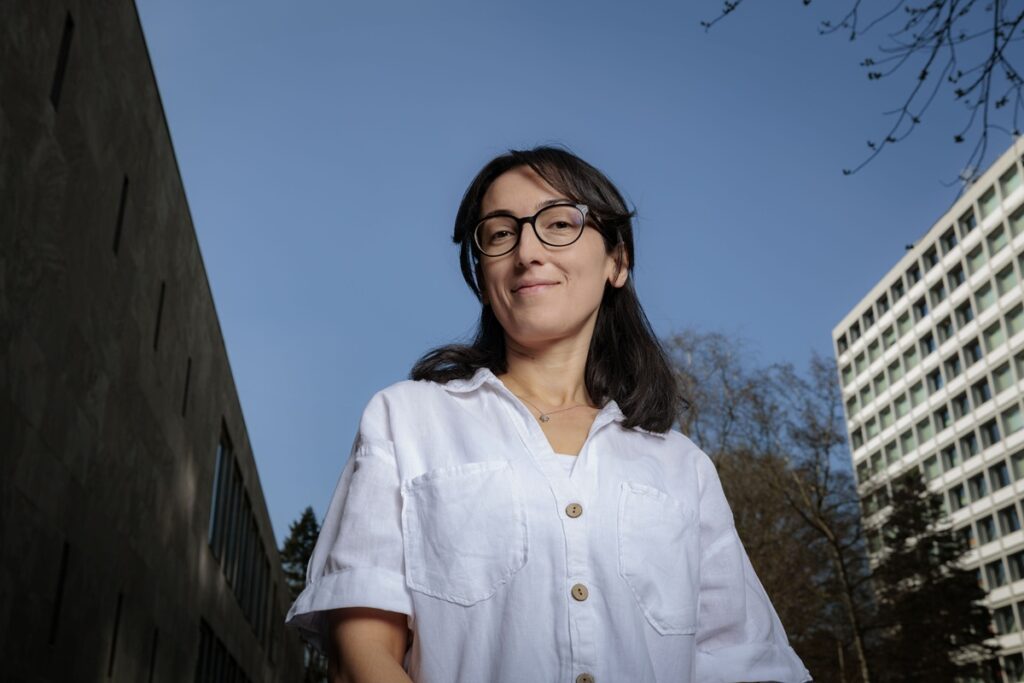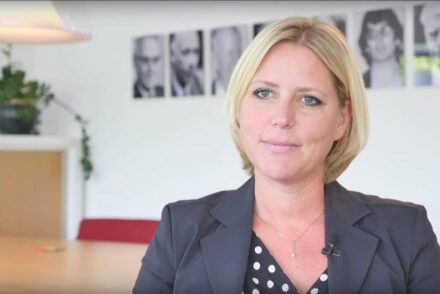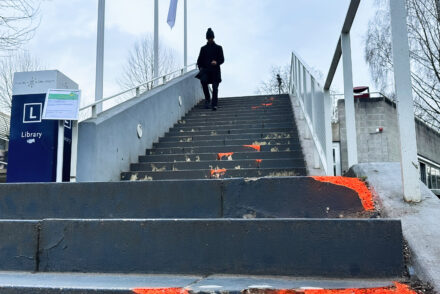The Nuns of Vught teach Dutch to internationals: ‘You can fully concentrate on the language’
Tilburg scientists have found their way to the monastery. Not to pray, but to learn the Dutch language. The Turkish Emel Öztürk followed an intensive language course at the renowned language institute Regina Coeli in Vught. ‘You only speak Dutch for a week.’

Emel Öztürk came to the Netherlands in 2011 for a PhD research. After a trip to Glasgow in Scotland, she got a job in Amsterdam in 2017. Once back in the Netherlands, Öztürk, originally from Turkey, decided to learn Dutch: ‘I have a Dutch partner, and I already spoke a little Dutch with him and with his family,’ says Öztürk, who took two courses at the University of Amsterdam.
Öztürk now works in Tilburg at the economics faculty, and here she wanted to master the language even better, but the corona pandemic threw a spanner in the works: ‘That was a shame, because it delayed me in learning the language for two years. Online courses were offered, but not at the level I wanted.’
Choose for yourself
Öztürk wanted more. She also wanted to be able to teach in Dutch and then she heard from the language institute Regina Coeli, the Nuns of Vught. ‘I asked my faculty if they wanted to support me. Initially, they thought the courses in Vught were too expensive, so I took a course here at the Language Center. But there I only learned the language in daily interaction.
‘That wasn’t what I wanted, because I can learn that myself. In Vught you have more options to choose which lessons you want. I wanted to learn grammar and I especially wanted to practice teaching: how do you start a lecture? How do you take a break? What do you say, what don’t you say?’
Intensive
In the end, Öztürk was able to convince her head of department and was allowed to take a course with the Nuns of Vught. ‘You get eight hours of one-on-one lessons with a teacher every day, for five days,’ Öztürk recalls. ‘So you only speak Dutch for a week. I think that is the purpose of the Regina Coeli method.
‘And in that week you also stay there two evenings for a joint meal. Then you eat together with other students who are at the same level, to practice even more. The lessons in Vught are very intensive, but the advantage is that you don’t have to think about other things. You can concentrate entirely on the language.’
Guilty
In September 2024, almost a year after her time in Vught, Öztürk was finally able to start giving lectures in Dutch. But in the meantime, the political wind in The Hague had changed. The funding of academic education and research is under pressure and the Internationalisation in Balance Act (WIB) aims to limit the influx of internationals and promote the use of Dutch in academic education.
The negative mood around internationalisation is hard for Öztürk: ‘I was very motivated to learn the language, but now I also feel guilty towards my international colleagues that I teach in Dutch. I don’t want to be the only one who can do this. It feels like I’m abandoning them.’
Workload
In addition, the economics faculty is likely to cut back, leaving less money for language courses. Öztürk: ‘The government wants us to learn Dutch, but there will soon be no budget for it. So you have to learn the language in your spare time. And if you have a full-time job, and children, you don’t have that time.’
At the same time, the workload of teachers will increase, Öztürk suspects. ‘Because of the cutbacks, teachers who are retiring will not be replaced. Dutch teachers are also getting busier as a result. In addition, they will have to take care of the courses that were previously taught in English, which will also increase their workload.’ It is the consequences of bad government policy, she believes, that have not been well thought out.
Frustrating
‘English is the most practical language of instruction at my faculty,’ sighs Öztürk. ‘All literature, all symposia and all communication in my profession is in English. So it makes sense that education is also in English. But that doesn’t mean that we as internationals shouldn’t speak Dutch. We should definitely do that in the supermarket or in the café.’
She tries to speak Dutch with her partner on weekends, but that is sometimes not easy. He also works at the university and mainly speaks English at work: ‘So when he comes home he almost automatically speaks English with me. But that’s not good, because I can’t practice the language that way.’
It is also strange that Dutch people you speak to on the street often answer in English, says Öztürk. ‘It depends a bit on the region. In Den Bosch, where I live, people do speak Dutch with me. But as soon as people in Utrecht or Amsterdam hear that I have an accent, they switch to English. And that is sometimes frustrating. Because that’s how we internationals never learn the language.’






